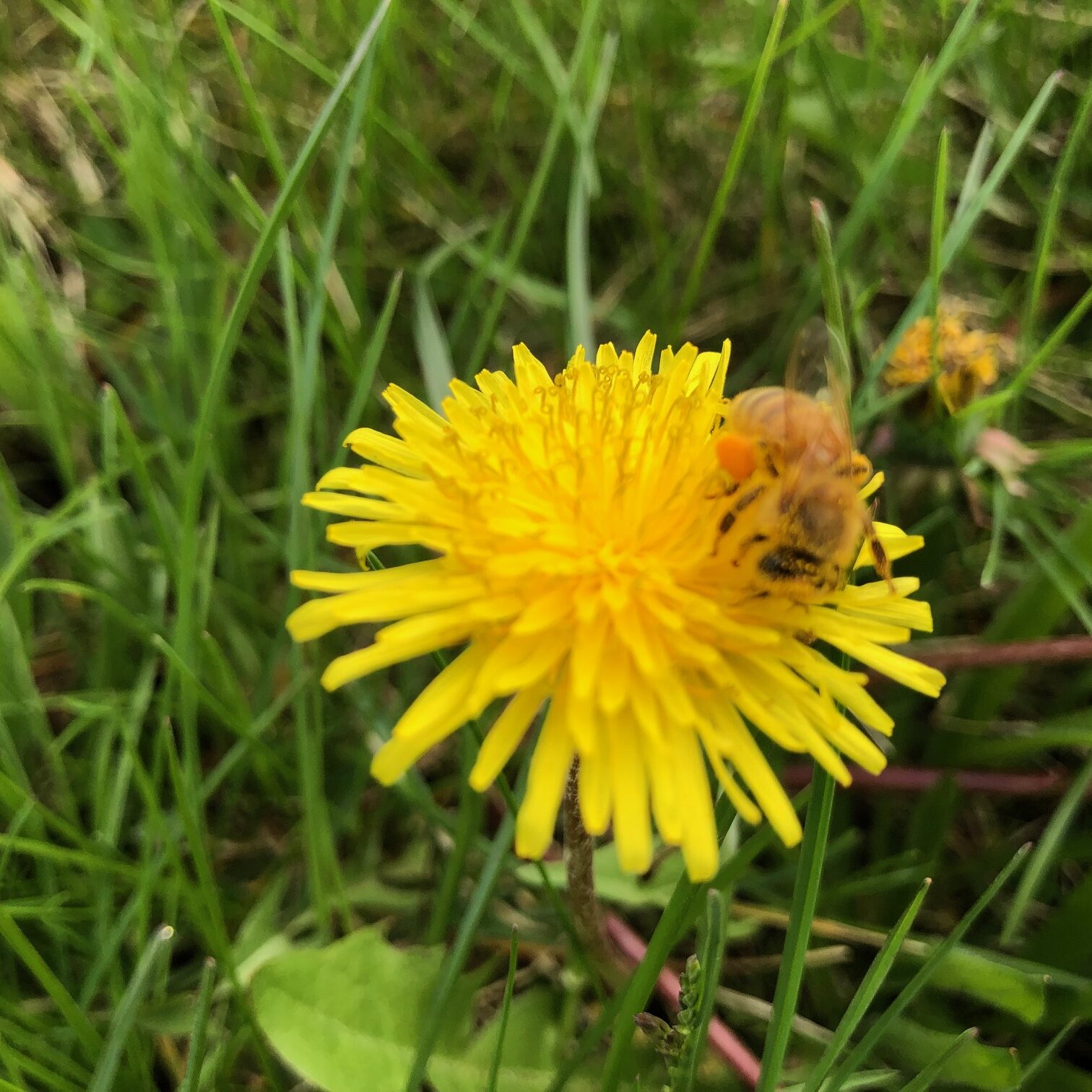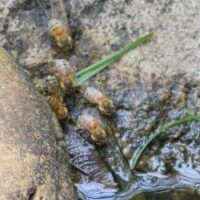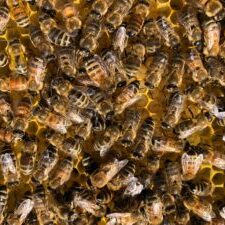We're Passionate About Pollinators and the Health of Our Environment

It Begins With Raising Healthy Bees
We are serious about the health of our honey bees and the importance of the role that pollinators play in our environment. We regularly inspect our colonies and use only organic methods to treat for varroa mites.

And Providing Them With Awesome Food
Today's agricultural landscape has changed drastically. Monoculture farms, increased use of pesticides, herbicides, and fungicides, and vectored viruses promulgated by varroa mites all play a role in the health of our honey bees. We locate our bees in areas that are rich in diverse, healthy, native floral sources.

The Natural Deliciousness That Healthy Bees Provide
Wholesome, natural honey is a delicious side benefit that healthy bees provide. We never heat treat, pasteurize, or otherwise alter the wonderful honey that our bees provide. Our artisan honey is extracted by hand and bottled especially for you. We take a limited amount from our colonies to ensure that our bees have enough food for themselves to make it through the long winters we can experience in Northwest Illinois.
Located in Beautiful Galena, IL
We are located in the far Northwestern corner of Illinois. Several miles south of Wisconsin and ten miles east of Iowa, we are at the southern end of an area known as The Driftless Area. With a rich topsoil that was left unscathed by glacial activity, we are in the heart of America's farmlands.
Our bees are presented with multiple choices of native floral nectar, sweet clover, alfalfa, soybeans, basswood, and fruit trees.
We harvest a minimal amount of honey from each colony to ensure our bees have enough food to endure the long winters that we can experience in Northern Illinois.


Its all about the bees...
Oh yes... The bees. Wonderful, industrious honey bees. Each bee will provide about 1/12 teaspoon of honey during her lifetime. Isn't that crazy? It takes about 800 healthy bees a lifetimes worth of work to make one pound of honey. Which is one of the main reasons we limit the amount of honey we harvest from each colony. While we love the awesome goodness that our bees provide, it is much more critical that our bees retain enough of their hardwork to stay healthy and endure winters and times of dearth.

The Needs of Bees
In the photo above, a group of honey bees are collecting water from a small pond I built next to the bee yard. In addition to collecting nectar, pollen, and propolis, bees will also gather water. Did you ever wonder why bees frequent swimming pools on hot summer days? Although they may sometimes get distracted by a sugary drink, they are primarily there to gather water. Bees are very good at maintaining a constant temperature within the hive; On hot days, the bees will gather water, deposit it on the entrance to the hive and fan their wings in an effort to regulate the temperature of the interior of the hive. Pretty cool...

Organization Within the Hive
A healthy colony in the middle of summer can have upwards of 60,000 honey bees. A vast majority of the population are worker bees. Worker bees are all female and they perform a majority of the "work" that needs to be done in order for the hive to survive. Some of these tasks include, feeding young, caring for the queen, foraging for food, and protecting the hive. The queen is also a female. She looks similar to a worker bee with the exception that she has an elongated abdomen. The queens only job is to make more bees. She does this by working her way through the colony and laying an egg in prepared honeycomb cells. A productive queen can lay 1000-2000 eggs each day! Then there are the drones. They are the males within a hive. There only job is to leave the hive each day and wait for virgin queens that they may mate with. They do not contribute to the upkeep of the hive although they are a critical component to the life cycle of the honeybee. In fact, if any of the three didn't exist - the colony would be unable to sustain their existence. Together, the three separate organisms make up a super organism. Yeah, bees are freaking awesome...